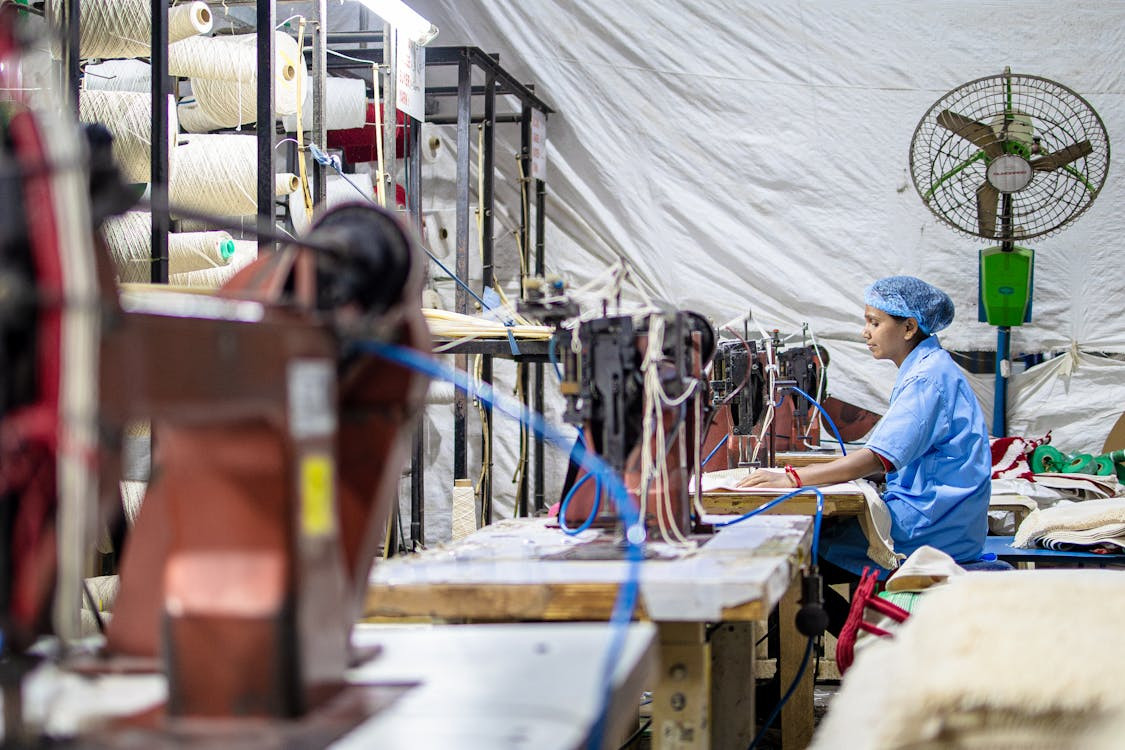According to Bisnis, the Indonesian Textile Association (API) revealed that foreign investors’ interest in investing in Indonesia’s textile and textile product (TPT) industry remains relatively low. The main reasons behind this are an unfavorable market condition and unclear regulations.
David Leonardi, Vice Chairman of API, emphasized that investment will only be effective if supported by strong purchasing power and market demand, which can positively impact the industry and national economy.
“The unfavorable market situation makes any form of investment ineffective,” David told Bisnis on Monday (March 24, 2024).
He explained that both the national and global TPT markets remain unstable. Moreover, import relaxation policies without adequate domestic market protection have led to an influx of finished textile products from abroad, reducing orders for local industries and small and medium enterprises (SMEs).
“Even during the Lebaran period, which usually boosts demand, orders did not see a significant increase,” he added.
In response to the government’s plan for machinery revitalization incentives, David appreciated the initiative as it could enhance the productivity of labor-intensive industries. The government plans to allocate IDR 20 trillion for an investment credit subsidy of 5% for small and medium-scale industries, including the TPT sector. However, he expressed concerns about the effectiveness of this policy if the market conditions do not improve and demand remains weak.
“The same applies to investment. Without clear and firm regulations, investors will be reluctant to invest in Indonesia,” he stated.
David also highlighted that machinery revitalization and productivity improvements might face obstacles if the market remains unstable. He urged the government to refine regulations to align with TPT industry policies, ensuring optimal protection for the sector. This protection should cover the industry’s supply chain and the absorption of the national workforce.
Investment Realization in the Textile Industry
Data from the Ministry of Industry (Kemenperin) shows that investment realization in the textile, apparel, and footwear sector increased to IDR 39.21 trillion in 2024, a 31.1% rise from the previous year’s IDR 29.92 trillion.
Specifically, investment in the apparel industry, a labor-intensive sector, surged from IDR 4.53 trillion in 2023 to IDR 10.20 trillion in 2024, marking a 124.9% increase.
In the first quarter of 2025, four textile and apparel companies officially received Business Registration Certificates (SKU) with a total investment of IDR 304.43 billion. This investment is expected to create 1,907 new jobs.
However, APSyFI Chairman Redma Gita Wirawasta revealed that rampant illegal imports have forced many textile companies to shut down. He noted that by 2024, approximately 60 companies in the midstream and downstream textile sector had ceased operations, leading to around 250,000 job losses.
Redma added that the surge in illegal imports has worsened the textile industry’s condition, which has been experiencing deindustrialization for the past decade.
China’s Textile Factory Relocation to Indonesia Stalls
The Indonesian Fiber and Filament Yarn Producers Association (APSyFI) disclosed the primary obstacles hindering the relocation of textile factories from China to Indonesia. According to APSyFI, this investment process is hindered by complex and non-transparent bureaucratic procedures.
APSyFI Chairman Redma Gita Wirawasta stated that Indonesia has significant potential to attract TPT sector investment from China, particularly due to the tariff war between China and the U.S. However, many investors hesitate due to problematic licensing processes in Indonesia.
“The main issue is corrupt bureaucracy, which discourages many investors from entering,” Redma told Bisnis on Monday (March 24, 2025).
Indonesia is actually an attractive investment destination for Chinese companies looking to avoid high import tariffs in the U.S. Data from Kemenperin indicates that investment realization in the textile, apparel, and footwear sector reached IDR 39.21 trillion in 2024, reflecting a 31.1% increase from the previous year.
Additionally, the apparel industry saw investment growth from IDR 4.53 trillion in 2023 to IDR 10.20 trillion in 2024, a 124.9% rise. In early 2025, four textile and apparel companies received SKUs with a total investment of IDR 304.43 billion, expected to create 1,907 new jobs.
“We will see whether the government takes real action or merely launches flashy programs with minimal impact,” Redma remarked.
The government has previously planned to simplify investment regulations in the TPT sector to enhance industry competitiveness and attract more investors. Coordinating Minister for Economic Affairs Airlangga Hartarto stressed that this labor-intensive sector plays a crucial role in the national economy.
“The textile and textile product sector, including apparel, significantly contributes to Indonesia’s economy. The sector’s exports exceed US$2 billion and employ nearly 4 million people,” said Airlangga.
However, he acknowledged that licensing barriers remain a major challenge. Airlangga also noted that Indonesia has moved up in producing high-value-added goods, such as high-quality shoes and textiles, necessitating improvements in the licensing system to attract more investment.
“Investors are eager to enter the textile and textile product sector, but licensing issues must be addressed promptly,” he concluded.
Source: bisnis.com
Photo Credit: EqualStock IN


